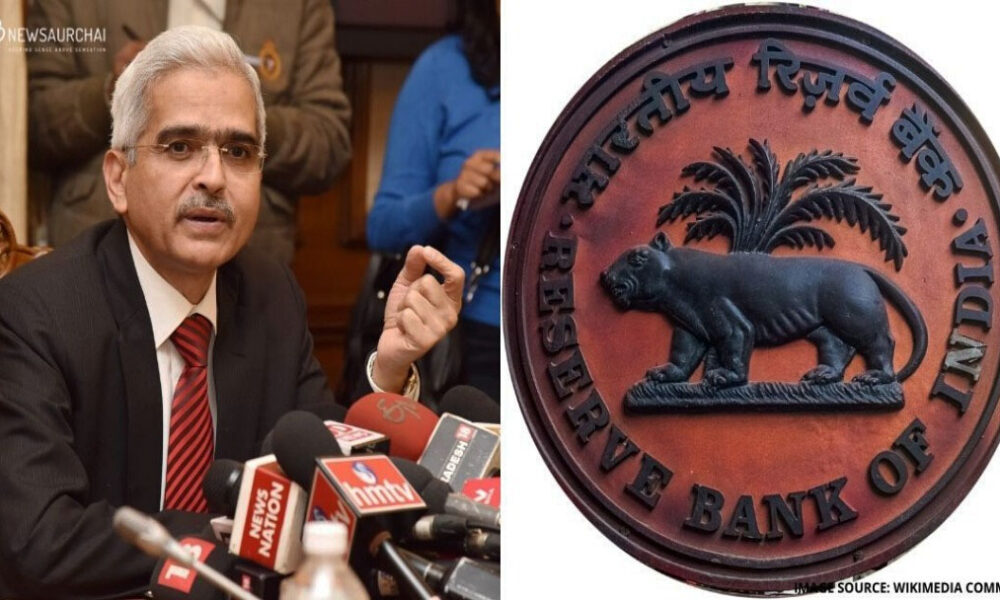In an emergency move on March 27, Reserve Bank Of India (RBI) Governor Shaktikanta Das slashed the key lending rate by 75 basis points (0.75 percentage point). A day after which the Modi government began economy rescue with a relief package of Rs 1.70 lakh crore–(to support the poor through direct cash transfers and food security measures),–the RBI joined the big fight as the country entered the third day of lockdown with a host of measures aimed at minimising the damage from Covid-19.
This move is to bar the economic fallout of the coronavirus-induced 21-day lockout in the country. An unscheduled meeting by Shaktikanta Das lead Monetary Policy Committee, which was initially slated for a bi-monthly review early next month came up with as a relief for the middle-class and corporates.
Out of six members in the committee, four favoured this move. Talking about the same Mr Das stated that “The economic outlook globally is uncertain and obviously negative… Financial stability is the topmost priority of the RBI in this crisis.”
Here are the key points of RBI’s surprise announcement:
- The magnitude of the cut in repo rate – the key interest rate at which the RBI lends short-term funds to commercial banks – has been the highest under Shaktikanta Das and also the steepest since January 2009. The largest cut by Mr Das before this day was back in August 2019, 35 basis points and considering today’s reduction, he has slashed the rates by a total of 210 basis points.
- For the next one year, RBI Governor announced a cut of 100 basis points in the cash reserve ratio (CRR), a step to guarantee sufficient liquidity in the system. CRR is the amount commercial cash banks have to keep with RBI mandatorily. Mr Das said that such a movie would release liquidity worth Rs 1,37,000 crore within banks.
- Excellent EMI Relief: RBI also instructed all the commercial and lending institutions to allow a three-month halt on all term loans EMIs outstanding on March 31. He advised banks to do all that is possible to keep the credit flow. This will be a relief for all EMI payers, especially for those — self-employed— whose income had become uncertain due to lockdown. The 3-month moratorium will apply to corporate loans, home loans, personal loan and car loans.
- Mr Das said that the current priority is to undertake “strong and purposeful action” to protect the economy. He assured stakeholders that there is no need to fight against the coronavirus pandemic.
The Governor also said that RBI has already infused Rs 2.7 lakh crore into the country’s financial system after the February policy meeting. He further added that the overall liquidity injection made by the central bank stands at 3.2 per cent of GDP. - Assuring to the citizen, he said that central bank would do whatever steps necessary” to mitigate the impact of the coronavirus on the economy. He further affirmed that RBI was maintaining its “accommodative” position, and would maintain its position “as long as necessary” to revive growth, while assuring inflation remained within the target.
RBI Governor while making announcement assured that the Indian banking system is safe and sound despite all the challenging situation. He affirmed depositors not to worry about their money.
Furthermore, he predicted a massive recession coming for the world and that India won’t be immune. “It all depends on how India will respond,” he said.
A global slowdown could make things difficult for India as well, despite some help from falling crude prices. Food prices may soften further on record crop; also, aggregate demand may weaken and ease core inflation further.
Three-way liquidity injection
At the presser, Das also announced:
- Auction of targeted long term repo operations of 3-year tenor for total amount Rs 1,00,000 crore at a floating rate.
- Reduction of CRR for all banks by 100 basis points. Will release Rs 1,37,000 crore across the banking system.
- Accommodation under the Marginal Standing Facility to be increased from 2 per cent from SLR to 3 per cent with immediate effect till June 30. It will release Rs 1.37 lakh crore into the system.
A combination of these three measures will make available a total Rs 3,74,000 crore to the country’s financial system.
Earlier, the financial services secretary had written to RBI seeking a moratorium on EMIs for a few months, interest and loan repayments. A relaxation in the NPA classification norms was also sought to help those who face a loss of income.
Under RBI rules, any default in payments has to be recognised within 30 days, after which the accounts are to be classified as “special mention accounts”. Experts say a re-classification is essential to ensure businesses outlive the coronavirus hit, even at the expense of banks for the time being.
